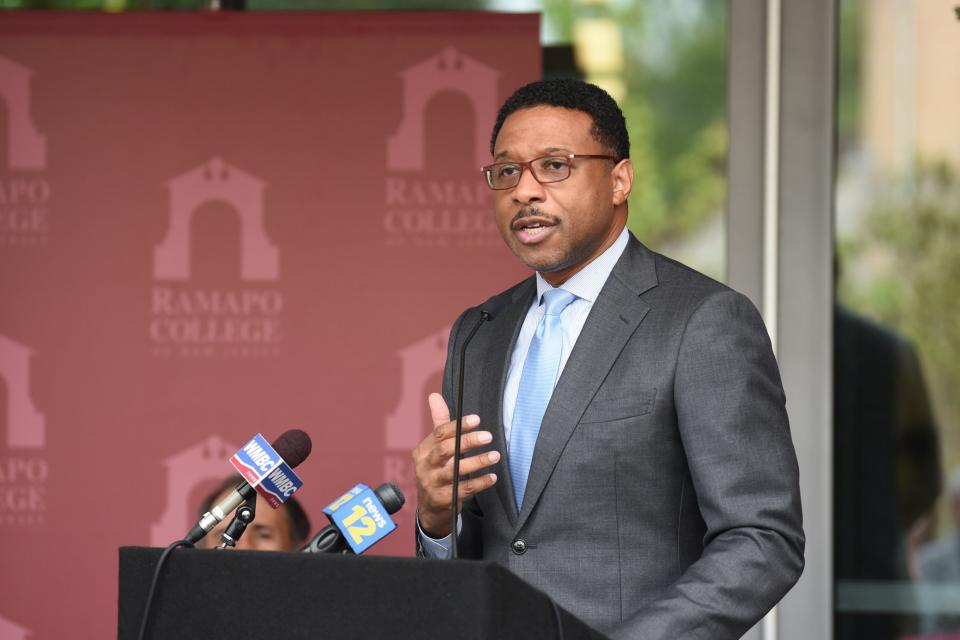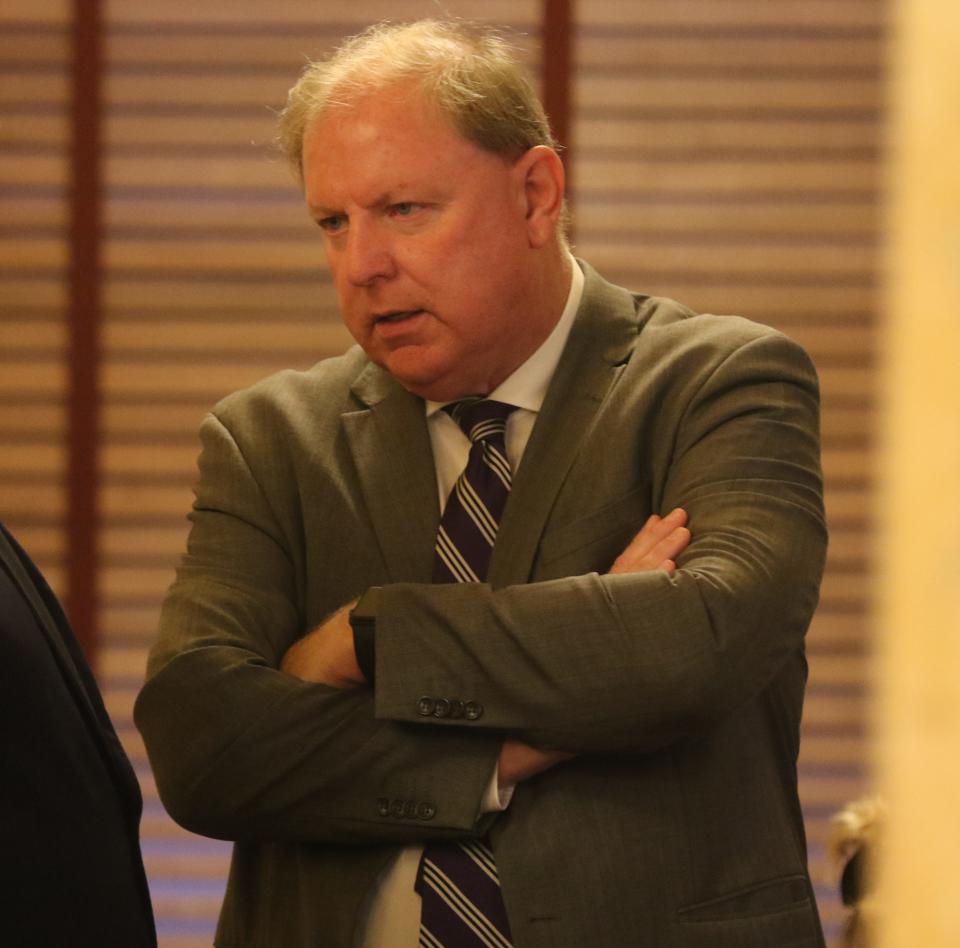Struggling NJ colleges seeking state support to stay afloat make their case to lawmakers
- Oops!Something went wrong.Please try again later.
Presidents and other representatives of three New Jersey colleges that faced financial crises in the two years after the start of the COVID-19 pandemic made their case for a handout from the state at a special meeting Thursday organized by members of the Legislature.
Leaders of New Jersey City University, William Paterson University and Bloomfield College — which entered into a merger in 2022 with Montclair State University — said their students were hit hard by the pandemic, causing the institutions, which serve minority and Hispanic communities, to grapple with accelerated declines in enrollment and lower revenue.
The leaders told legislators that this was the final blow to the institutions, which had already been struggling with falling enrollment and decades-long cuts in state aid.
In addition, colleges should be ready for a "demographic cliff" in 2026, said Brian Bridges, secretary of higher education, in an opening statement. A trend of declining enrollments at higher education institutions would hit its lowest point that year, he told the roundtable of elected officials.
"Quite honestly, we are at a transition point, a flexion point," Bridges told the group, indicating the need for a shift in how colleges are run in New Jersey.

Legislators pushed back against the college presidents. State aid has not kept up with colleges' expenses because they have been expanding without informing the state, in a process of "unchecked growth ... without us knowing," said Sen. Joe Cryan, D-Union, in a back-and-forth with one college president.
Putting her head in the sand was not an option, said Marcheta Evans, president of Bloomfield College, referring to her decision to send a public call for help when her institution's financial woes put its operations in peril. New Jersey is one of the nation's largest exporters of college students, but Bloomfield's graduates stay in state and contribute to its economy, Evans said, noting this was an incentive to invest in the college, which would also look at increasing partnerships with high schools in the community.
Andres Acebo, the newly installed president of New Jersey City University, told the legislators that the school's game plan is to install new financial management practices and a policy of "living within our means" by reducing "position creep"— eliminating expensive and unnecessary higher-management roles. He said the school also plans to focus on developing "human capital" instead of "real estate pursuits."
The university was criticized for real estate expansion in Jersey City, which many say contributed to its fiscal crisis. Acebo highlighted the university's efforts to mitigate "chromium contamination" and food deserts in Jersey City, but also noted that there was some "mission drift" in previous years in terms of "meeting students where they are."
"Which is what I want to talk to you about," said Senator Cryan, adding amiably that he did not hold Acebo responsible.
"You didn't create" NJCU's fiscal crisis, Cryan said, but the university still "had an obligation" to graduate students, many of who take on debt when they enroll, and sometimes ended up with "debt without a degree," even before the pandemic hit.
"If you take a kid in, and you're going to put him in debt, you have an obligation to get that young person a degree," said Cryan. 63% of students graduated with debt, Cryan said, adding that Bloomfield's graduating numbers were similarly "brutal." Acebo countered that socio-economic factors played a larger role than is obvious in those statistics and that the university offered debt-free programs through the state.
A vice-president at William Paterson University said it undertook layoffs, furloughs and demolished an outdated residence hall as austerity measures, but also asserted that it intended to grow its nursing program, which was second in size only to its counterpart at Rutgers University to address the state's health care worker shortage.
The state needed to understand that all smaller colleges, even financially secure institutions, were wrestling with hard financial decisions and inflation, said Kathryn Foster, president of The College of New Jersey.
More:Gov. Phil Murphy pushing for more fiscal accountability for NJ's public colleges
More:Murphy's proposed budget would affect the affordability of NJ colleges. Here's his plan
NJCU, which is also facing a state investigation, asked the state for significant support after "decades of chronic underinvestment, ill-fated plans and the pandemic's tyranny" brought the university to its current crisis, Acebo said.
Last month, he said the school will preserve key academic programs while closing many others, to maintain its mission of giving low-income and minority students entry into the middle class.
The nursing, ESL and early childhood education programs previously targeted for possible removal will be retained, Acebo said.

The board approved closing 97 programs, including undergraduate programs in teacher certification, economics and physics, as well as several arts offerings and some master's and certificate courses.
Education, nursing and accounting are “gateways to middle-class, economic-mobility-driven jobs” and “are what this institution is known for," Acebo told NorthJersey.com in an interview. The university is among the state's oldest minority-serving institutions, with student median earnings of about $47,000. Some 43% of its students are Hispanic, 23% are Black, and 72% qualified for federal loans targeted to low-income students.
William Paterson University, meanwhile, announced layoffs in November 2021 to address a $30 million deficit. Critics say mismanagement by senior leadership had played a major role in the financial woes.
Thursday's meeting was chaired by Sen. Andrew Zwicker, D-Somerset, and Assemblywoman Mila Jasey, D-Essex.
This article originally appeared on NorthJersey.com: COVID in NJ: Struggling colleges seek state support from legislators

